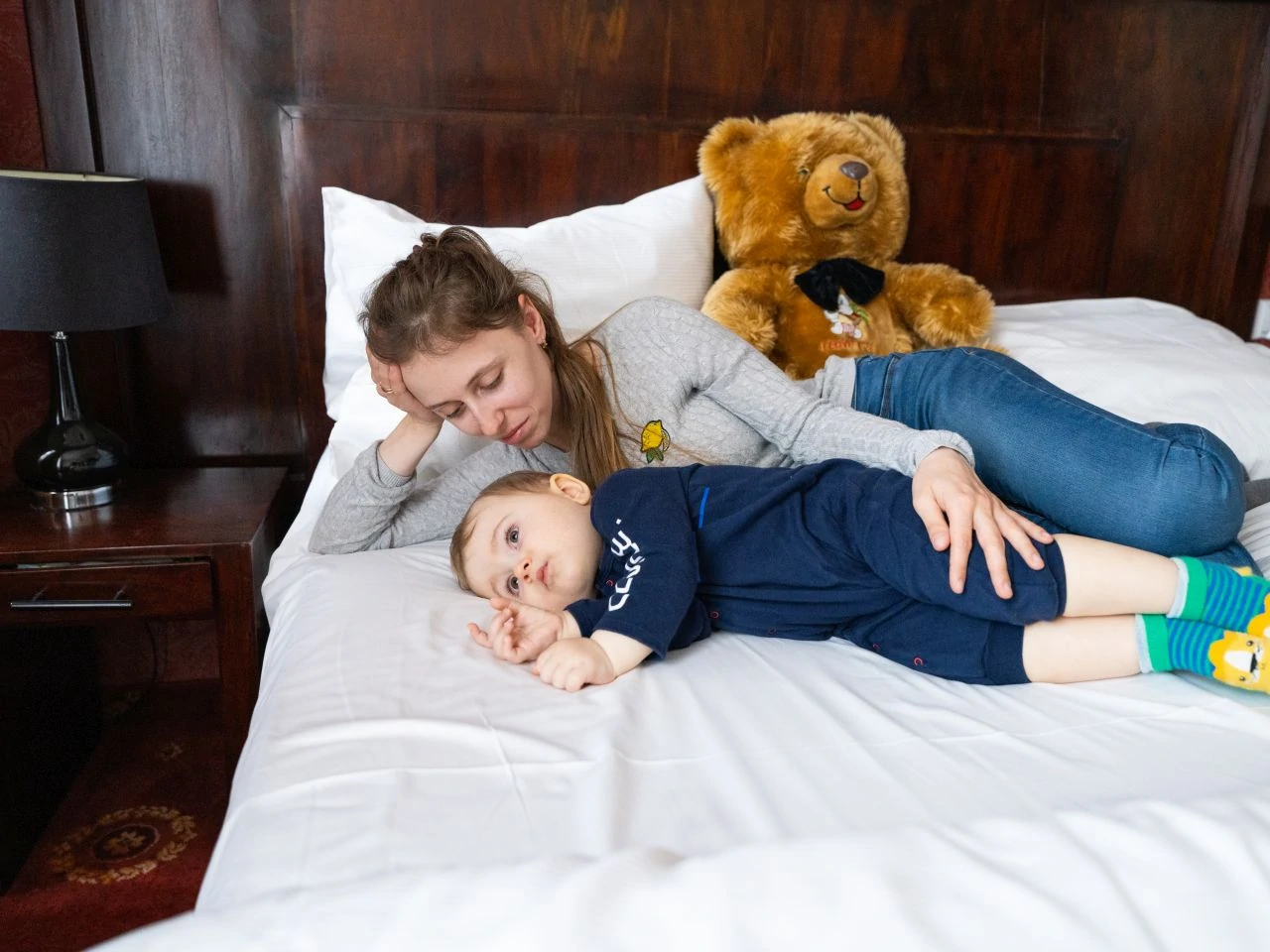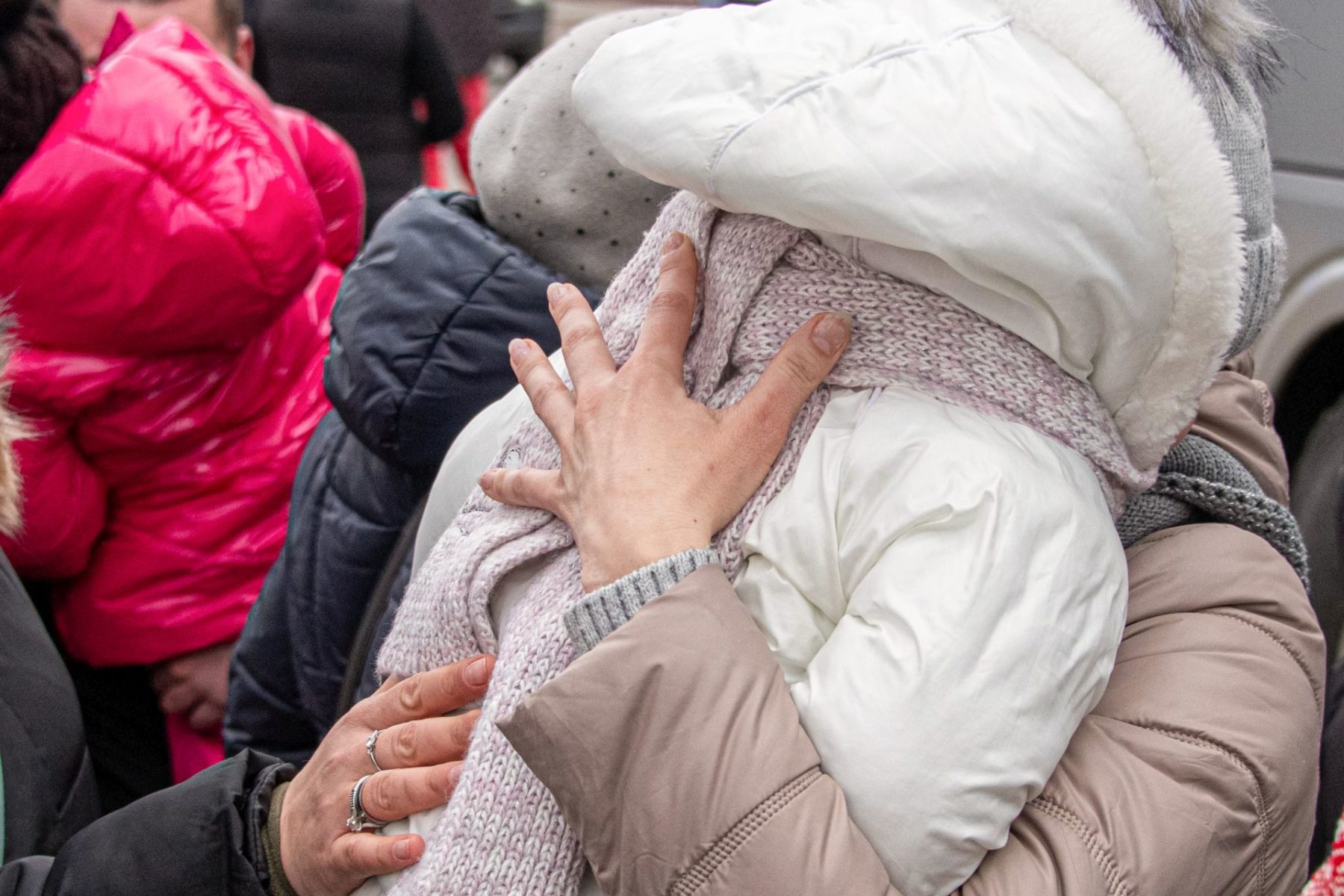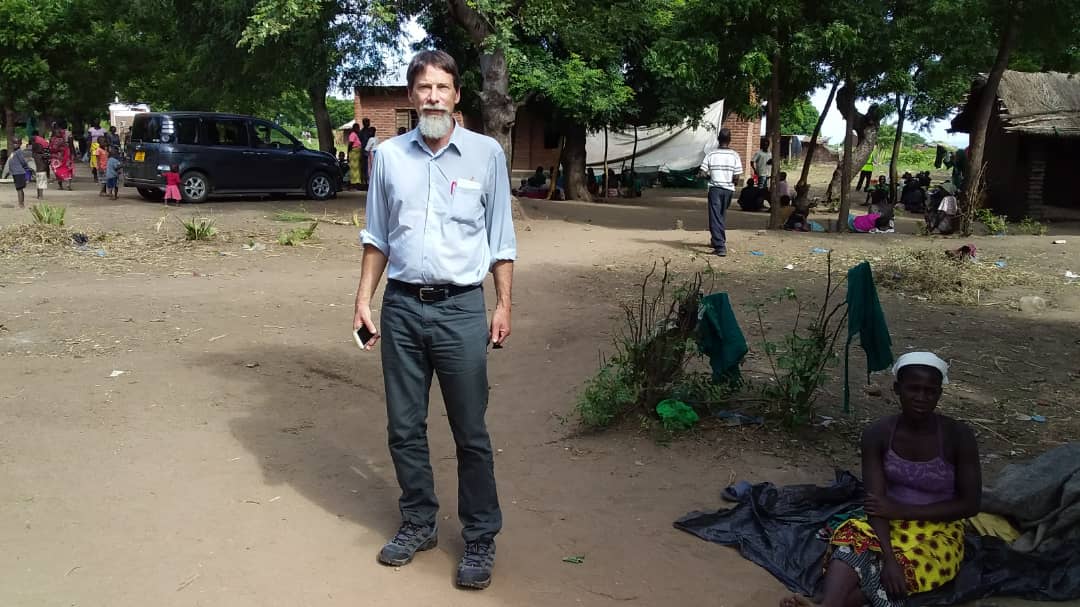Fellow Blogger Adam Keehn From Americares at The Border of Poland/Ukraine
 |
Alina with her son, Timofy, in a hotel in Krakow, Poland (Photo/Mike Demas). |
I’ve been in Krakow, Poland, for two weeks. Krakow is about 200 miles from the border with Ukraine, and I’ve been to the border more than once, to learn where refugees are going and what they need. Now, many refugees are crossing the border by foot despite very cold weather. Many of those with the resources to drive left earlier in this crisis. As people enter Poland, I can see the relief in their eyes. At the same time, I see their anxiety, having left their homes, family members, loved ones, and friends. You can imagine how that might look. Now imagine the faces of 3 million people.
The health needs of refugees from Ukraine are immense, and they will only continue to grow. Americares deployed an emergency response team to Poland; 3 tons of medicine and medical supplies are being distributed in Ukraine to hospitals and responders and another large shipment is in transit. We’re planning more shipments and are receiving requests from hospitals and health clinics in all parts of Ukraine for everything from bandages and gauze to prescription medication. Here in Poland, we know people are arriving without sufficient medication, which threatens to exacerbate chronic health conditions like hypertension and diabetes. One physician on our team spoke with an elderly man at the train station in Krakow who showed her one of his last doses of heart medication. She could see that his ankles were already swollen, and she contemplated what this would mean for him in the days and weeks ahead.
Along with threats to physical health, refugees face psychological impacts from trauma. Processing the pain from their experience will take time, but Americares and our partners work to address immediate, and long-term, mental health needs. We provide psychological first aid. It’s not therapy but is designed to reduce the initial distress caused by traumatic events. We are able to listen to survivors, link them with available information and services, and engage in a compassionate manner. In many cases, this provides safety and comfort as well as stabilization when survivors are emotionally overwhelmed. Addressing this acute trauma helps people focus on other pressing issues like: Where will I live? Where will I find food and water? Where can I find the medicine I need? And health care for my children? What happened to the family and friends I left behind?
 |
There are many challenges ahead, ones that Americares and our partners in and around Ukraine are ready to address. Our decades of work in emergency response and refugee crises globally equip us with the expertise and empathy needed to take action. Countries will need to increase their capacity for support for an influx of refugees and the war has both immediate impacts inside Ukraine and other countries experiencing a crisis, including shifting global supply chains that impact the health and wellbeing of people in other countries already experiencing food insecurity, such as Afghanistan and Syria. One outcome I hope for: is a ripple effect of sympathy for refugees all over the world. Because the reality for all refugees is grim since the vast majority never return home.
I know this from my work for Americares in other regions: In Afghanistan, Bangladesh, Somalia, Syria, and Yemen where Americares programs provide critical medicine and supplies, as well as health services for people who have left their homes behind. Americares also works in Colombia, providing comprehensive health services for people fleeing instability in Venezuela. In each place, we are learning how best to support health care for children and adults who have left their homes, seeking safety and a better life.
 |
I am heartened by the global response to this refugee crisis and hope people keep advocating for refugees. It’s critical.
Providing mental health and psychosocial support to refugees—and Americares will make mental health support available in this crisis as well. We know from our work in Jordan with Syrian refugees and in Colombia with Venezuelan migrants
Comments